Make your job ads 23% better with these 5 weird tricks (and one awesome tool)
March 07, 2015 by Marco Cecconi
March 07, 2015 by Marco Cecconi
Stack Overflow Careers is how the company I work for makes money, pays salaries and sustains great communities like Stack Overflow.
You see, Stack Overflow is, by far, the best community of developers on the internet, and Careers is our effort to improve their lives by finding them a better job. If you are a recruiter, you know that your company has something to offer, and we want to match the right candidate to the right job. What makes us unique is that we do our homework. We know a lot about our beloved developers, and we know a lot about how to match the right job to the right person.

This is all great, but what if we send the right people to the right jobs, and the job ads are unconvincing or ineffective?
It seems like a trivial task, but it turns out that a lot of recruiters have a hard time distinguishing something that a developer should love, from something that they won't like much, or at all. As Stack Overflow developers, our sales staff often asks us to review specific job ads on the Careers site to understand what, in our opinion, makes them tick, or prevents them from working.
After a while, it's impossible not to see a few patterns. Avoid these if you can:
Seems obvious, no? Makeing spelign mistks makes you look unprofesional.
Unfortunately we still see job ads written by people not familiar with the noble art of spellchecking.
Nothing says "I've copy-pasted this across 25 sites" like an unformatted bulleted list, abuse of emphasis or lack of visual clues. Compare these two examples:
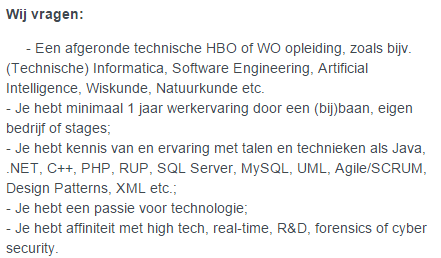
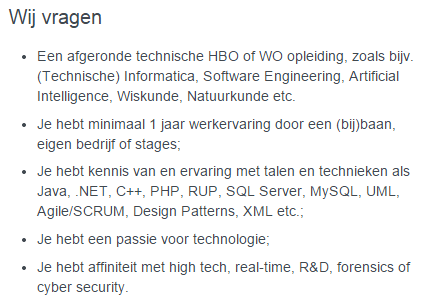
This is a bit more tricky. A lot of companies are stuck in the land of "Mission Statements" and marketing PRs. There's nothing wrong with these, but they use the wrong kind of language that you need to use with developers in order to be effective.
While phrases like "monetizing our assets" or "leveraging our synergies" might make perfect sense in a C-level board meeting, you will only be met with blank, disappointed stares if you use with programmers. Not that programmers don't have their own weird lingo. We do. Just stick to simple English, trust me on this.

Many job titles specify a bunch of technologies and levels of seniority, for example "Senior Ruby Developer" or "Java Engineer". This is generally speaking, not a good idea. There are a few reasons for this. Job ad titles are super important because it's what they read on the links reading to your ad. Recruiters have an extremely limited number of words to make the right impression, so they should use them wisely!
Our job ad have tags, which describe technologies. These are almost always shown alongside your title: don't put them in the title itself! A "Senior Developer" job tagged Ruby conveys exactly the same information than a "Senior Ruby Developer" tagged Ruby. Also, there's a slight, but positive, difference. It conveys the correct message that you want to hire a developer who wants to work in Ruby, not a developer who is a Ruby single-trick pony
Seniority is tricky because it depends on the company. A senior developer in one place could not be a senior elsewhere. What counts are the responsibilities that you require these people to assume. Let people decide by themselves whether a job suits their skills instead of making them "self select" before reading the ad.
What you can do, is use the ad to entice people by telling them why the job matters. "Revolutionize the healthcare industry!" works much better than "Senior PHP developer", no?

Certainly not the least important point are ineffective job descriptions. This is a real job description I found on teh interwebz
The Senior Software Developer will perform software development, systems integration, and support for both Windows and Web-based applications with a focus on quality. This includes any technical activities associated with meeting client expectations. You will be coordinating and communicating across disciplines and departments.
What's the problem here? This exact wording can apply to any Microsoft senior developer job. As a developer it tells me absolutely nothing about this company. Will I be writing software to send people to Mars? Help people find answers to their programming questions? Write landing pages for Pepsi ads? Develop the next AAA game? Who knows?
What matters to developers is the difference they will be making, what they will be building. They already know that a developer needs to have focus on quality.
Who doesn't?
You can follow the advice I've given above, but I've created this tool do check for spelling, jargon, and tags in titles automatically. Maybe you'll find it useful!
TL:DR; The tool is called Mission Statement and you can use it to check any (published) careers job ad for some common mistakes.
Find a careers job ad you'd like to check; copy its JobId from your browser's address bar
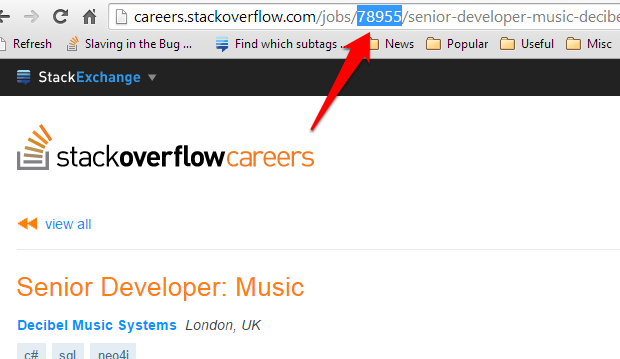
Go to https://sklivvz.com/jargon, the "Mission Statement" page, and paste the JobId you copied in the field; press "Go Fetch It!"
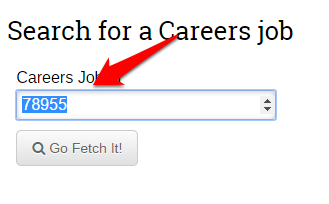
Enjoy!
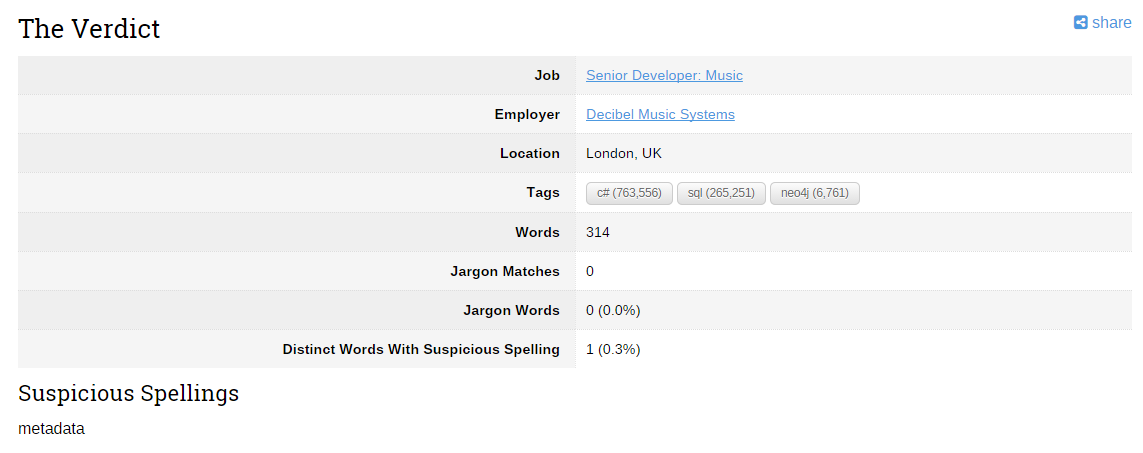
I am the Chief R&D at BaxEnergy, developer, hacker, blogger, conference lecturer. Bio: ex Stack Overflow core, ex Toptal core.
Read moreFebruary 20, 2026 by Marco Cecconi
Last night I decided to dedicate some time to my old [z80 emulator](https://sklivvz.com/posts/z80). I've squashed a few bugs and ported it to .NET 10. Then I added a ULA emulator.
Read moreFebruary 08, 2026 by Marco Cecconi
Compile-time translations via source generators, ICU MessageFormat + CLDR plurals, PO file workflows, no per-request allocations.
Read moreDecember 27, 2024 by Marco Cecconi
TDD can’t guarantee zero-defects. Let us debunk this software development myth.
Read moreMarch 12, 2023 by Marco Cecconi
Stack Overflow could benefit from adopting a using conversational AI to provide specific answers
Read moreSoftware engineers go crazy for the most ridiculous things. We like to think that we’re hyper-rational, but when we have to choose a technology, we end up in a kind of frenzy
Read more…